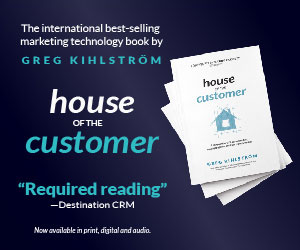This article was based on the interview with co-founder and CEO of Bonsai, Matt Butler, and VP Growth Marketing at Gabb Wireless by Greg Kihlström, MarTech keynote speaker for The Agile Brand with Greg Kihlström podcast. Listen to the original episode here:
First-party data is key in today’s marketing landscape, especially as third-party data becomes less reliable due to cookie deprecation and other factors.
In a recent episode of The Agile Brand podcast, co-founder and CEO of Bonsai, Matt Butler, and VP Growth Marketing at Gabb Wireless, Russ Hanig, discussed the importance of getting better insights to understand customer behavior, perform media mix modeling, and more, with reliable first-party data solutions.
Matt Butler, with his background in retail analytics at Google, saw the growing complexity of the data landscape and decided to co-found Bonsai to tackle the challenges of measurement across all channels, not just what can be done at Google. Russ Hanig, on the other hand, is focused on creating safe tech for kids at Gabb, with a strong emphasis on protecting children from the negative effects of social media and technology.
Both Matt and Russ emphasized the importance of first-party data in understanding customer behavior and making informed marketing decisions. With third-party data becoming less reliable and cookie deprecation impacting the ability to track user behavior across platforms, marketers need to rely on their own data to gain insights into their customers.
First-party data allows brands to have a direct relationship with their customers, enabling them to personalize experiences, target specific audiences, and measure the effectiveness of their marketing efforts. By collecting data directly from customers through interactions on their website, app, or other touchpoints, brands can gain a deeper understanding of their preferences, behaviors, and needs.
In today’s data-driven marketing world, having access to reliable first-party data is crucial for brands to stay competitive and relevant. It allows them to adapt to changing consumer trends, optimize their marketing strategies, and ultimately drive better business outcomes.
Overall, the conversation on The Agile Brand podcast highlighted the importance of first-party data in today’s marketing landscape and the need for brands to invest in collecting and analyzing their own data to gain a competitive edge in the market. As cookie deprecation and other challenges continue to impact third-party data, brands that prioritize first-party data will be better positioned to succeed in the ever-evolving digital landscape.











